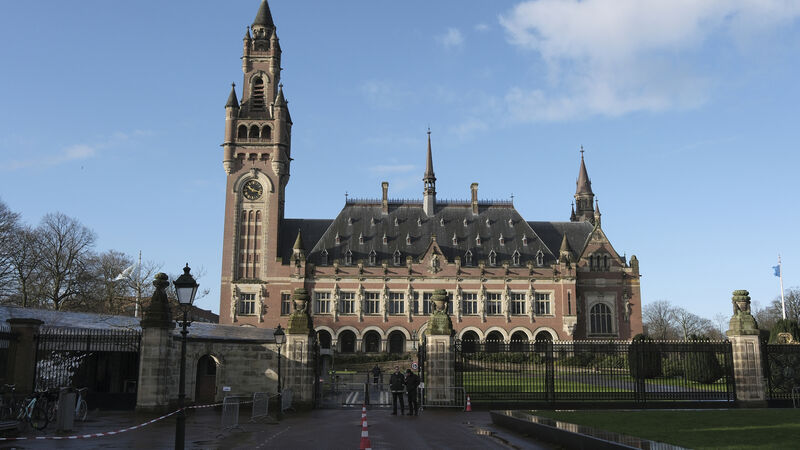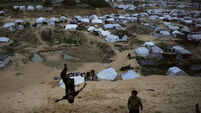Israel's policy in occupied Palestine contrary to international law - UN

The Peace Palace, which houses the International Court of Justice, or World Court, in The Hague, Netherlands (Patrick Post/AP)
A top United Nations court has ruled that Israel’s settlement policy in occupied Palestinian territories is contrary to international law.
The panel of 15 judges from around the world at the International Court of Justice said “the transfer by Israel of settlers to the West Bank and Jerusalem as well as Israel’s maintenance of their presence, is contrary to article 49 of the Fourth Geneva Convention”.














